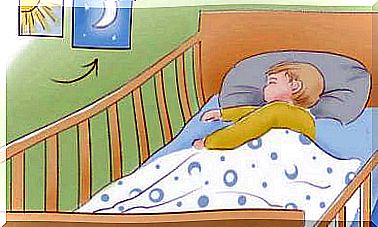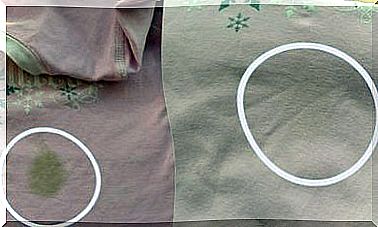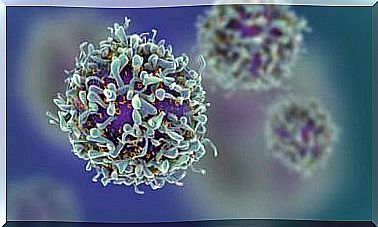Signs That Your Liver Is Overloaded

The liver is a point of interest for many people, as many health problems are associated with this organ. To ensure its proper functioning, it is important to recognize the signs that your liver is overworked.
The liver is affected by many factors: poor nutrition, pollution, stress, negative emotions, etc.
In this article we help you find out if your liver is overworked, as we present a series of signs and symptoms that are easy to recognize.
The liver affects your whole body

The liver is a vital organ closely related to the blood circulation throughout the body. In addition, it has the role of filtering toxic substances.
If the liver does not function properly, the body can feel the effects in various ways.
In today’s article, we show you how to find out if there are certain problems in this organ, guiding you by clues on the face, mouth, skin and hair.
Wrinkles between the eyebrows: a sign that your liver is overworked
Wrinkles are considered to be a sign of the aging process, and the moment they appear is attributed to genetic inheritance.
However, wrinkles can also be an indication of how your body works, as this information is very useful in preventing certain diseases.
This is also the case with vertical wrinkles that appear between the eyebrows. These may suggest that your liver is overworked. The deeper they are, the more serious the problem.

Brown or green spots
Brown or green spots on the face are not just a cosmetic problem or a sign of aging or sun exposure.
These signs, especially if located on the right side of the face or in the temples, may indicate that your liver is overloaded, although they may also suggest that there are certain problems with the gallbladder, pancreas or spleen.
If your skin has a yellowish tinge, it means that the liver is not working properly.
Oily skin on the forehead
Skin type is another factor that we attribute to genetic inheritance or age. However, dry or oily skin may indicate an internal imbalance.
When the skin on the forehead is oily, you may suffer from certain liver problems. In some cases, this is a symptom associated with excessive sweating.
Localized alopecia and white hairs
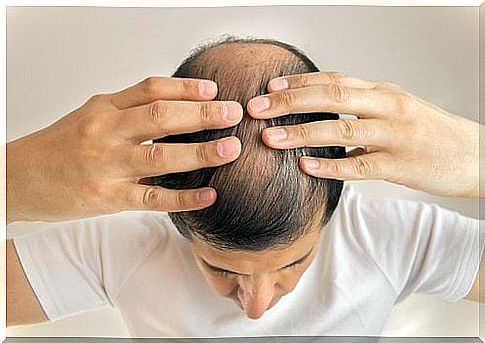
In spring and autumn, it is normal for your hair to fall out more than usual. However, some people face an unexplained hair loss manifested over a long period of time. To treat this problem, it is important to identify the area where the hair falls out.
If alopecia is located in the middle of the head or if the hair starts to turn white, the internal organs, including the liver, may not function properly. This is true for both women and men.
Premature bleaching of the hair can also indicate biliary problems.
Vision problems
In traditional Chinese medicine, the liver directly affects the blood circulation in the eyes. Therefore, if you have vision problems, they can be caused by overloading the liver.
When the liver is not working properly, the eyes lose their natural glow, the pupils may appear whitish, and the whites of the eye and the area around it may turn yellow.
Inflammation of the throat and gums
Many people have inflamed gums that bleed easily when brushing their teeth. This problem is associated, in turn, with the liver, as well as inflammation in the throat.
Although we can use various types of toothpaste and mouthwash specially created to treat these problems, if we do not improve our liver function, the sensitivity and inflammation in the gums and throat will not disappear.
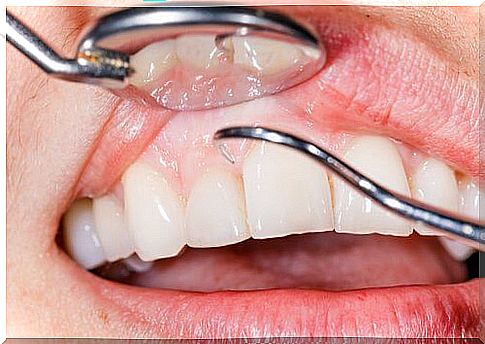
The appearance of the chair
The chair can be another element that provides clues about the health of the body. Here are the signs you need to consider when it comes to liver function:
- The sticky stool, with a very strong smell, can occur as a result of poor digestion and fermentation of food consumed.
- The hard, dry stool, made up of lumps, is characteristic of constipation, but can also be associated with poor liver function.
- Diarrhea.
- The chair is light in color or has a clay-like hue.
- The floating stool is due to fats that have not been properly digested.
So what do you think? Is your liver overworked or not?


